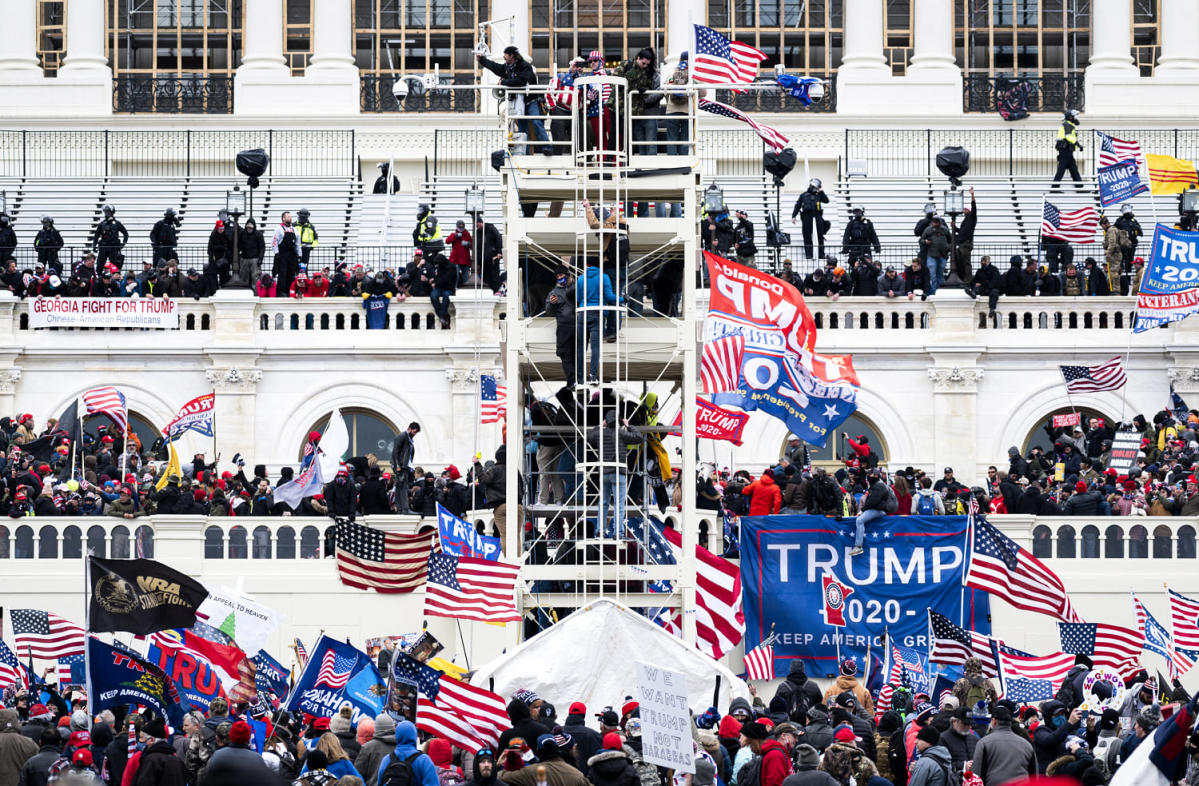In January, Donald Trump held a campaign event in New Hampshire and heard from a supporter who urged him to “free” Jan. 6 criminals. “We will,” the former president replied.
As for when that might happen, the Republican declared in mid-March that pardoning “the January 6 Hostages” whom he believes are being “wrongfully imprisoned,” would be among his “first acts” after returning to the White House. Less than a week later, Trump added additional clarity to his plan: Jan. 6 rioters could expect pardons on “the first day” of his second term.
According to those on the former president’s team, Jan. 6 pardons would be considered on a case-by-case basis — the idea being that Trump would exercise at least some caution and wouldn’t simply pardon everyone convicted of crimes related to the attack on the U.S. Capitol.
But the presumptive GOP nominee himself apparently has a different perspective on this.
When Trump sat down with Time magazine’s Eric Cortellessa, the reporter reminded him that more than 800 Jan. 6 participants have been sentenced through our judicial system, and most of them pleaded guilty. Others were convicted by juries. “Will you consider pardoning every one of them?” Cortellessa asked.
“I would consider that, yes,” Trump replied.
Apparently surprised, the Time reporter added, “Really?” to which the Republican said, “Yes, absolutely.” (He went on to share some related and bizarre ideas about the police “ushering” rioters into the Capitol, and a nefarious “they” who “destroyed” evidence that would’ve made him look better.)
As an NBC News report added, Trump was referring to Jan. 6 defendants “caught on tape brandishing or using firearms, stun guns, flagpoles, fire extinguishers, bike racks, batons, a metal whip, office furniture, pepper spray, bear spray, a tomahawk ax, a hatchet, a hockey stick, knuckle gloves, a baseball bat, a massive ‘Trump’ billboard, ‘Trump’ flags, a pitchfork, pieces of lumber, crutches and even an explosive device during the brutal attack that injured about 140 police officers.”
It was nearly two years ago when the Republican first broached this subject, telling a Tennessee audience that he would look “very, very seriously” at pardoning those who were arrested for Jan. 6 crimes. For emphasis, he added, “very, very seriously.”
Twenty three months later, his position on the rioters, whom he’s labeled “J-6 patriots,” is far more radical — to the point that Trump is now the first major-party presidential candidate in the history of American politics to run on a platform that effectively says, “Vote for me and I’ll deliberately release violent criminals back onto the streets.”
But as we’ve discussed, it’s also important to acknowledge the broader set of circumstances. In the weeks, months, and years that followed the Jan. 6 assault on the Capitol, federal prosecutors got to work charging rioters, not just because they committed crimes, and not just to hold them accountable, but also to prevent future attacks. The message was intended to be clear: The United States prosecuted these insurrectionists, so those thinking about following in their footsteps should expect to face legal consequences, too.
Trump intends to silence that message, undo what’s been done, and make clear that criminals who ignore the law in his name need not worry about accountability.
There is arguably no greater example of the Republican’s hostility toward the rule of law.
This post updates our related earlier coverage.
This article was originally published on MSNBC.com
